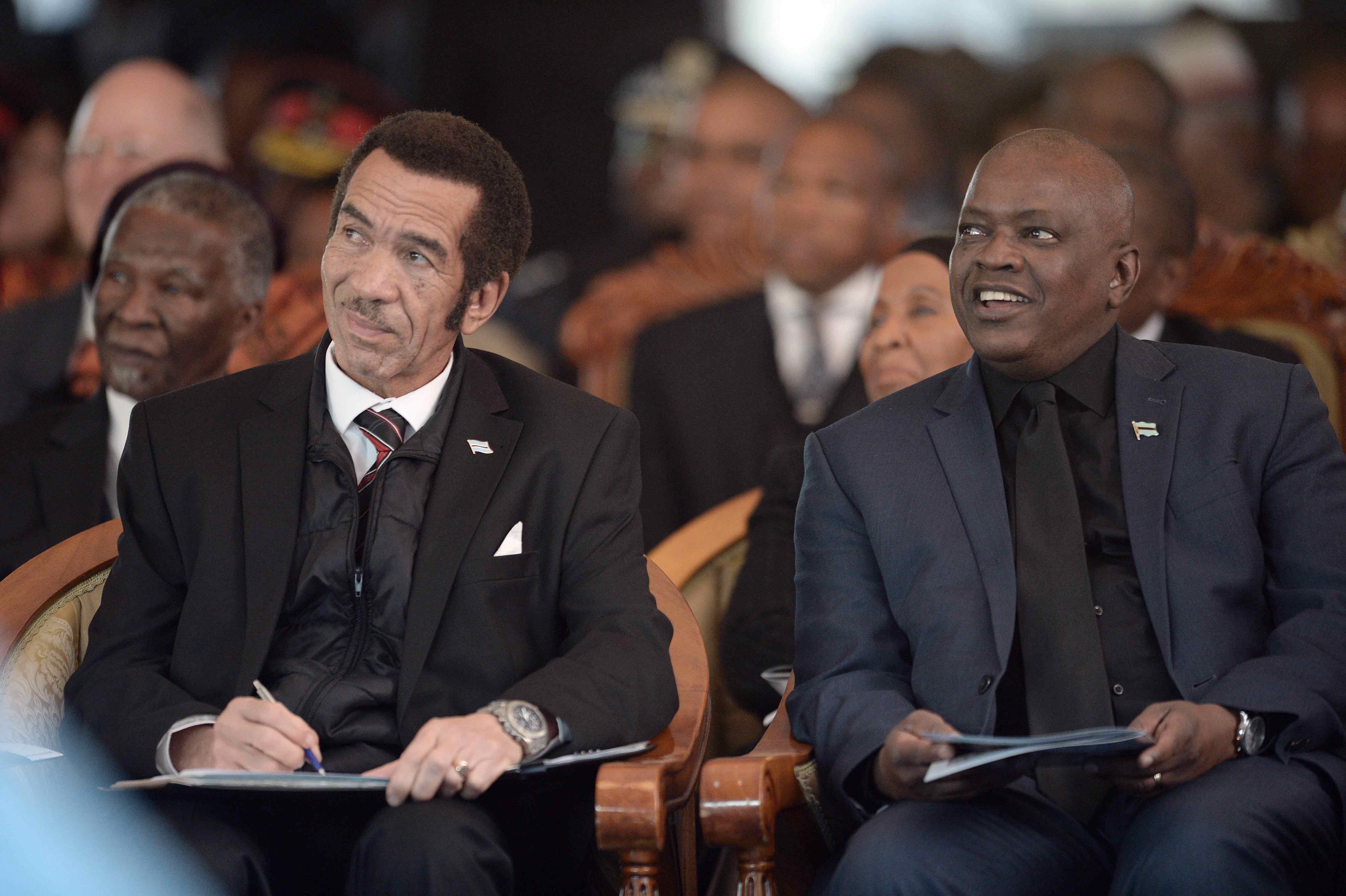The news that the “men of God” are intending to “intervene” in the dispute between President Mokgweetsi Masisi and former President Ian Khama should be viewed with suspicion and concern.
The Evangelical Fellowship of Botswana and the Botswana Council of Churches have announced that they are seeking to mediate between the two presidents and are quoted as saying the “church is concerned and worried. The matter is now national, and the church had to rise up.”
Since the first elections in 1965, there have been five peaceful and smooth transitions of power between Presidents, and it is only in last year’s change over between Khama and Masisi that conflict has arisen. It is also clear that the problem is with the former President Khama and his cronies who are stirring up trouble to seek to get back to power and fend off investigations of rampant corruption which characterised the ten years of Khama’s rule.
Questions need to be asked, therefore, as to why the churches want to intervene, when they have been noticeably silent over corruption and the host of social and economic ills plaguing the country since 2008.
Faith based organisations, such as churches, and particularly Evangelicals, are inherently conservative, supporting, and demanding, subservience to authority. Throughout history, churches have been on the side of dictatorships, opposing progressive thought and social revolution. We only must look at the United States elections two years ago which brought President Donald Trump into power on the back of his evangelical base. His appeal to traditional white supremacy, vote catching opposition to women’s rights and war mongering, anti-immigrant, rhetoric appealed to “god fearing”, primarily rural voters. The founding fathers of the Khama chieftainship were not noted for being progressive democratic forces and while our first President, Sir Seretse Khama championed independence and democratic rule, he was an authoritarian “benevolent dictator” at heart.
The problem with dictatorships is that they are not always benevolent, and his son, former President Ian Khama, is anything but benevolent and sought to perpetuate, and extend the unbridled powers of the presidency as if he was running Botswana like a 19th Century chief.
This is why the intervention of the churches is so disturbing, because they fundamentally oppose social change. This is why, over the past eight years, their total silence over the growing social and economic ills of the country has been deafening. The litany of their failure to provide moral leadership is staggering, starting perhaps with their abject failure to address the HIV/AIDS pandemic which started over 20 years ago.
Instead of supporting campaigns for protective sex, they rallied against the act of sex itself outside marriage, choosing to focus on their perceived “promiscuity” of men and women within their flocks.
This hypocritical social blindness means that the churches have failed to speak out against the pandemic of sexual harassment, sexual assault and rape which women face on a daily basis in Botswana. They have been silent on issues of gender rights or taking a leadership position on promoting gender equality. They have also been silent on defending LGBT rights and have failed to promote considered debate on other social issues such as the continuous use of the death penalty.
And they have been silent as Botswana is rocked almost daily, over allegations of corruption, depriving the country of billions of Pula which contributes to gross inequality between the rich and the poor, one of the highest in the world.
Why then have the churches chosen to get involved in a political dispute?
They have demonstrated neither the political, nor spiritual credentials to take this action.




